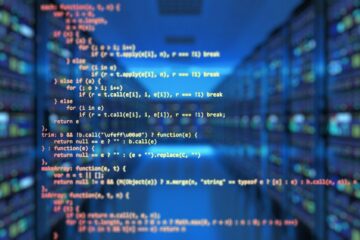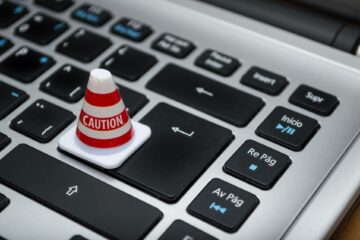![]()
Introduction:
Social media platforms have ended up being a vital part of our online lives. Social media is a great way to get in touch with others. But safety is also paramount while using such social networking sites because people contact you through social media and get access to your personal information through your social media. This problem multiples when you use multiple platforms and are active on them. Members of the public that you can see in a work context have the potential to see your profile on social media, be it via Instagram or [1] Facebook. From these websites, they can get information about you, your friends, family, and a variety of intimate details about your life. Be careful with the amount of information in the photos or videos that you share. For example, could someone find out where you are if you are being photographed in a familiar place or at someone’s house? It is relevant when you are signaling that you are not home or are on the go.
Presence on these sites helps us keep in touch with our friends and family, socialize, look for work or find help, but it also exposes us to attacks from criminals and predators looking for an easy target. And as to how personally the information you post can get to them, it is important to keep an eye on your safety on social media platforms, just like one would be while traveling or at night. Criminals can use your information, photos, and location against you, and one must always keep in mind that just because you need to use a password to sign in doesn’t mean your profile is protected.
At the moment more than 70-80% of the Indian population is active on these platforms, but many of these people don’t know how to stay safe on social media. It’s seen that users share data openly, often use poorly protected passwords, and every year millions of people are victims of social media hacks, stolen personal information, or are victims of online fraud.
Learning a way to stay safe on social media is mainly essential given the proliferation of integrated payment systems and apps, phone verification, and touch technology. If someone stalls an account, they likely have access to banking or card information, credit, home, or work addresses. And other personal information that would be used to steal the victim’s identity. The users need to know about the various ways by which they can keep their social media account and themselves safe. In this article, we are going to look into various ways that are available for the users and the steps taken by the government and the judiciary in this direction.
Ways to be Safe on Social Media
Mostly, on social media platforms, the default setting for data protection is “public”. It means that anyone with access to the website can see your information. This might also additionally appear pleasant if you’re posting holiday images to Instagram and have hopes to be an influencer someday. However, criminals can identify several things from your posts and photos that you may not want to show the public around, including your daily routine, places you frequently visit, and the types of items you may have in your home. Your Facebook profile can also contain your hometown, phone number, email address, and workplace details- all information that criminals can take advantage of and ruin your safety.
So it is important to use your privacy and security settings to protect your data from phishing and social media fraud. Social media accounts offer some forms of security and privacy settings to help two-factor users authenticate their accounts and ensure who can see the information to enforce social media security measures[2].
Make sure your privacy settings are set to “private” or “friends only” if you post personal information, including photos of your children, dates you are going to be away from home, or details that you do not want to post publicly in general. To some extent, you can consider not posting any of this information as; your friends can share it through screenshots of word of mouth even if you set your profile to private. When using social media, it is imperative to make sure that your privacy settings are as strict as possible to prevent predators from accessing it. Remember that people on your close network can accidentally breach your privacy, and if someone you love is careless with information, your data can also be at risk. So it is better; to not post it.
So what information should users keep private for only close friends?
- Location information
- Home or work addresses
- Telephone and email number
- Date of birth and other private information
Why? Such information of users can be used to answer privacy questions on banking financial platforms and other websites. If the information is not confidential, users are not protected against social media scams[3].
Secure Passwords
Strong passwords protect online accounts from hackers, which is very helpful in terms of identity theft, social media fraud, and account theft by hackers.
It’s also necessary to have a different password for each of your accounts to ensure that someone who signs in to one doesn’t have access to all of them. It maximizes the ability to stay across all social media apps.
Manage your Friends and Followers List
Whether your account is set to private, public, or somewhere in between, it’s a good idea to take a look at your followers now and then. Facebook has been around for 16 years and, one may have gathered some interesting characters on your friend’s list. Still, want the high school kid to know what you had for breakfast this morning? Remove people from your list as it seems fit. They will not be informed of the change and will only notice it if they look directly at your profile.
Also, be careful who you accept follow or friend requests from. You may think it’s harmless to accept an invitation from someone you don’t know, but you can open up friends and family you interact with to spam or scam. Criminals are increasingly using; fake profiles to carry out schemes such as money laundering, extortion, and simple theft. Just because you are smart enough to spot a fake post or message doesn’t mean your friends and family are. Most social media platforms, like Instagram and Facebook, are now investing a lot of time and money to make sure that their users are protected from social media bots and fraud. However, users must constantly exercise caution when accepting requests and while interacting with others to stay safe on social networking sites.
Research before you Click and Share Data
To be safe on social media, users should do their homework before accepting, clicking, or sharing digital content. That means paying attention to what is being shared, evaluating sources, and closely monitoring anything that seems strange or slightly suspicious.
For example, if a friend asks you for money under suspicious circumstances, you can call them to ask about their request. Another example is when a friend who you thought was already on Facebook adds you, you can give them a call to ask about it. It may seem cumbersome, but it avoids potential hacking, spam, or phishing problems.
Likewise, when you see great news from a website you don’t know, it’s almost always better to do your own Google search than click a link. If you are asked to enter data for a quiz, you can search for the quiz and see if it is reliable (or better yet, never give information to a quiz app).
Taking the time to investigate suspicious or even slightly objectionable things will help users, their friends, and family stay safe on social media, even as scam tactics change and become more sophisticated.
Beware of Social Media Scams and Phishing
Social media scams and social media phishing are two of the most common problems on social media platforms today. Links used for this type of attack usually attempt to steal your identity, money, or work, to spread a bot or virus on your network. Some of these social media scams are harmless, but others can be used to; actively steal a large amount of information and money. It is important to be careful, to double-check everything before you click on it, and to pay attention to when and how users submit information to a third-party website.
Now that we have looked into various ways by which we can try to stay safe on such social platforms. We are going to; see various measures taken by the government to ensure the safety of their citizens (netizens).
In recent times, the announcement of the Government of India, when they announced new social media rules to curb its misuse. The Centre in February[4] 2021 announced new and strict guidelines for social media intermediaries that will make it mandatory for platforms like Whatsapp to identify the “originator” of illegal and fake messages that might provoke people and hurt the integrity of our nation. In addition, companies such as Twitter, Facebook, and Youtube must remove such messages within a certain period, establish complaint redressal mechanisms and assist government agencies with the investigation. The offenders will be punishable with imprisonment for a term of not less than five years. In 2018, a draft was released, about these new rules which were published this year.
These rules however received a mixed reaction from the citizens. Some founders of technological think tanks were of the view that such regulations are important in the face of challenges such as fake news, child sexual abuse material, and drug trafficking on digital platforms but the government needs to be aware that it has not overregulated or adversely affected the right to privacy and freedom of speech enshrined in our constitution. This could also undermine the safe harbor protections afforded to intermediaries under Section 79 of the IT Act. While some are of the view that since only a small number of social media users tend to be spreading such hatred and that these guidelines will help in addressing these situations uniformly across all social media platforms and ensure the safety of the majority of users across India.
Judicial Decisions to ensure Social Media Safety
In, Swami Ramdev & Anr. vs Facebook, Inc. & Ors[5], the Delhi High Court issued an injunction against Facebook, Google, Youtube, and Twitter (Defendants) and other online intermediaries and asked them to remove from their platforms worldwide a list of URLs that were allegedly defamatory towards the plaintiffs. The case was brought by yoga guru Swami Ramdev in connection with an allegedly defamatory video and related content published and distributed by the defendants. After a detailed analysis of the Intermediary Liability Act in India under the IT Act 200 and IT Rules 2011, the court ruled that intermediaries must remove and block all illegal content and videos uploaded from IP addresses in India must be taken down worldwide. In addition, the court ordered access to geo-blocking for illegal content uploaded outside Indian territory and barred viewership of such content out of India.
In a landmark decision in the case of the National Association of Software and Service Company vs. Ajay Sood & Others[6], the High Court of Delhi declared “phishing” on the internet to be an illegal act, which entails a court order and the assertion of damages.
The lack of specific laws represents a series of manipulative crimes that have increased rapidly in recent years. Compared to the past two decades, an efficient hierarchy of responsibilities is required.
Conclusion
Overall, social media is a fun way to keep in touch with people, learn new things, and share your story with the world. With the right; privacy settings and a little caution, it can also be a safe place to do all these things. The internet can sometimes be a dangerous place and, social media is no exception. Take time to protect your records and to use security tools provided by the app to stay safe online. You should also take the time to regularly check your social media accounts, keep changing passwords, and review your account so that you can ensure long-term security. The internet can be relatively safe if you are aware of the risks and take steps to mitigate them. We should practice mindful social media usage and be conscious and aware at all times.
References:
[1] Sneha Viswalingam, 5 Ways to Stay Safe on Social Media, EVERFI (Dec., 21,2020), https://everfi.com/blog/community-engagement/5-ways-to-stay-safe-on-social-media/
[2] Marisa Parsons, Why is safety on social media important?, (Sep. 24, 2019), https://www.convergeinternational.com.au/cvi/about-us/resources/blogs/why-is-safety-on-social-media-important/2019/09/24/why-is-safety-on-social-media-important
[3] Trish Hoffman, What is Social Media Safety and Why is it Important?, (Jun. 29, 2017), https://womenagainstcrime.com/what-is-social-media-safety-and-why-is-it-important
[4] Chitra Ramani, Govt announces new social media rules to curb its misuse, THE HINDU (Feb. 26, 2021), https://www.thehindu.com/news/national/govt-announces-new-social-media-rules/article33931290.ece
[5] Swami Ramdev & Anr. vs Facebook, Inc. & Ors, CS (OS) 27/2019.
[6] Nasscom vs. Ajay Sood & Others, 119 (2005) DLT 596, 2005 (30) PTC 437 Del.



0 Comments